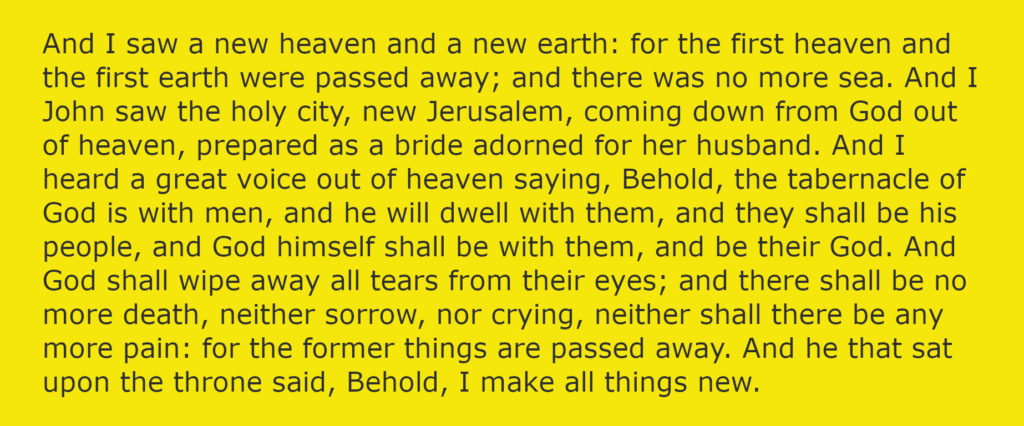On June 18, 2004, a major motion picture was released entitled: The Terminal. It was a comedy-drama produced and directed by Steven Spielberg and starring Tom Hanks and Catherine Zeta-Jones. The film was a commercial success, earning $219 million worldwide.
But beyond the Hollywood glitter of a famous producer and big-name actors, there was a storyline, a rather odd storyline.
The film is about an Eastern European man who is stuck in New York’s John F. Kennedy Airport terminal when he is denied entry into the United States and at the same time is unable to return to his native country because of a military coup. The protagonist, Viktor Navorski (Tom Hanks), finds himself to be a man without a country.
Unable to return home and unable to proceed into the USA, Viktor is trapped in an airport terminal. This makes for an interesting story; however, the really fascinating thing is that it is based on a true story that was even more remarkable than the film.
You see, in September 2003, Steven Spielberg had bought the rights to the autobiography of Mehran Karimi Nasseri. Nasseri was an Iranian refugee who lived in the departure lounge of Terminal One in Charles de Gaulle Airport from August 26, 1988, until July 2006, when he was hospitalized. That’s right, he was a man without a country and because of a citizenship dispute, he was stuck in an airport terminal for 18 years!
It is time to time-travel
Now let’s go way, way back in time to another place where another man was in search of citizenship. This man’s name was Abraham. Both Old Testament and New Testament Scriptures make a big deal about him and as we shall see, for good reason.
We are first introduced to Abraham in Genesis 11:
> In v. 26, we learn that he was born in Ur of the Chaldees,
> In v. 29, we learn that he gets married,
> In v. 31, we learn that his father took him away from his birthplace to an city called Haran.
So far there is not much to talk about, but then comes Genesis 12:1-2 …
Now the LORD had said unto Abram, Get thee out of thy country, and from thy kindred, and from thy father’s house, unto a land that I will shew thee: And I will make of thee a great nation, and I will bless thee, and make thy name great; and thou shalt be a blessing:
Unlike most people, God had audibly spoken to Abraham and had given him a great command with a great promise. God commanded him to leave his residence and wander to a place he had never been before. In return for his obedience to leave, God promised to bless him, and bless him He did!
Blessed, yes, but still a man without a country
Throughout his life of wandering, Abraham gained enormous wealth, but like Nasseri, he was a man without a country. Ur of the Chaldees could have been his country, but his father, Terah took him away from his place of nativity. The city of Haran and its surrounding lands could have been his country, but God took him away from his second home.
In both instances, Abraham was being led by another person to a place he had never seen. One thing they had in common was that all roads would eventually lead him to the land of Canaan.
He was a man without a country, yet unlike the story of Nasseri, Abraham was a man who did have a special promise from God. A fertile land flowing with milk and honey was ready for Abraham to occupy, but was Abraham ready for the land?
Even though much of his later life was spent in the land of Caanan, it still was not his. Many others had already settled the land and Abraham was required to coexist and sometimes tread lightly with his fellow occupants. God was preparing Abraham and his descendants to envision their future home.
Genesis chapters 12 to 25 follow him as he made his way up and down the length and breadth of Canaan, the land that would one day be known as Israel, the land of Abraham’s offspring. But what was so important about this country? What made it so special?
Follow along for the answers:
I. Why the land of Canaan?
In the ancient world Canaan was on the Fertile Crescent which spanned from southern Mesopotamia upward and westward to Egypt. During a time when there was no aircraft technology (and no airport terminals), the Fertile Crescent was the safest route for land travel and would bring many people through Israel’s region.
Besides the Middle East and Africa, Israel also had major land route access to Eastern Europe and Asia. With its border along the Mediterranean Sea, it had shipping access directly to Western Europe. In other words, the country of Israel was in a central part of the world giving it access and influence.
This was an important location and God clearly defined the borders long before Israel possessed the land. Genesis 15:18-21 …
In the same day the LORD made a covenant with Abram, saying, Unto thy seed have I given this land, from the river of Egypt unto the great river, the river Euphrates: The Kenites, and the Kenizzites, and the Kadmonites, And the Hittites, and the Perizzites, and the Rephaims, And the Amorites, and the Canaanites, and the Girgashites, and the Jebusites.
II. Why steal land owned by others?
A. Israel did not steal it, God gave it
As seen in the previous verse, Canaan land was already occupied by several tribes and nations. So why disturb these people now?
The land pledged to Abraham was part of God’s provision for the Jewish people. After the Exodus from Egypt, the Jews were given the Promised Land, confirming God’s power to predict the future and fulfill His promises. Here are two powerful reasons for God commanding the Hebrews to conquer the land and make it their own.
1. It was in God’s authority to give:
Psalm 24:1 …
(A Psalm of David.) The earth is the LORD’S, and the fulness thereof; the world, and they that dwell therein.
We sometimes forget every land, not just Canaan, belongs to God. He created it, and He can do whatever He wants to with it. You cannot steal something you already own.
2. It was in God’s pleasure to give:
Psalm 135:6 …
Whatsoever the LORD pleased, that did he in heaven, and in earth, in the seas, and all deep places.
This means that it is important for all of us not to take God and His goodwill for granted. A lesson the Canaanites were about to learn.
B. Israel did not steal it, the Canaanites forfeited it
Giving the land to Abraham’s descendants was, in part, a judgment on the sinful Canaanites.
In Genesis 15:16, the Lord gives a timeframe for the transfer of the land, as well as a reason for it …
But in the fourth generation they shall come hither again: for the iniquity of the Amorites is not yet full.
This statement clearly shows that God had a reason for wresting the land from the Canaanites—namely, their sin. At the edge of the Promised Land, Moses told the children of Abraham:
Deuteronomy 9:4 …
Speak not thou in thine heart, after that the LORD thy God hath cast them out from before thee, saying, For my righteousness the LORD hath brought me in to possess this land: but for the wickedness of these nations the LORD doth drive them out from before thee.
Abraham did not inherit the land immediately because it was not time yet for judgment to fall. God eventually took the land from the idolaters and turned it over to His chosen ones.
III. Why have land in the first place?
Although much has been written about Israel’s history as a country, God’s plan was never limited to things in the past. Our God is everlasting. He knows no beginning and no end. Time has no hold over Him.
When God chose to give Israel its very own country, He did so for it to have a “home office” from which to bless, administrate, and inspire all other countries and nations upon the earth.
A. The birthplace of the Messiah (the blessing)
God wanted His Son to be born in His own country. This would not only make Jesus of the nation of Israel, but of the country of Israel, a legal citizen.
Micah 5:2 …
But thou, Bethlehem Ephratah, though thou be little among the thousands of Judah, yet out of thee shall he come forth unto me that is to be ruler in Israel; whose goings forth have been from of old, from everlasting.
B. The kingdom of the Messiah (the administration)
The earthly throne was established by King David and through his lineage, the Messiah would claim legal inheritance in the Millennial Kingdom which is yet to come. In the future, Christ will return to rule the entire earth for 1,000 years. His capital city will be Jerusalem in Israel.
Luke 1:31-33 …
And, behold, thou shalt conceive in thy womb, and bring forth a son, and shalt call his name JESUS. He shall be great, and shall be called the Son of the Highest: and the Lord God shall give unto him the throne of his father David: And he shall reign over the house of Jacob for ever; and of his kingdom there shall be no end.
C. The prototype for the New Jerusalem (the inspiration)
There will come a time when this earth (including Israel) will be completely destroyed. God will once and for all eliminate every speck of sin and death. In its place, God will create an entirely new heaven and earth. Part of the blessing of this new earth will be the holy city – the new Jerusalem coming down directly from Heaven upon the earth. Everything that was promised to the original Jerusalem in the Old Testament will be completely fulfilled in the New Jerusalem, and more!
Rev. 21:1-5 …

As with the kingdom of the Messiah, the New Jerusalem is a glorious future event still to be fulfilled.
So what this man without a country?
The birthplace of Jesus the Messiah, the throne of Christ the King, and the eternal city of God Almighty, not a bad set of results considering that it all began with a man without a country.
God has an amazing way of transforming simple, everyday people into mighty nations. He also has a way of transforming vile pagan lands into a country of righteous splendor. The country of Israel today is in turmoil; actually, that land has always been that way. Praise to God, that Israel’s future as a country will blossom into an eternal land whereby all inhabitants will be forever blessed!
One day, the man without a country will have his promise completely fulfilled by His God. Abraham will be a glowing reminder in the New Jerusalem that God always keeps His promises. Abraham’s COUNTRY plays a big part in God’s DIVINE SCHEME. The biggest question is, will you be there to share that country with Abraham?
Defining moments
- Abram became Abraham
- Canaan Land became the Kingdom of Israel
Care to comment on this blog post?
Sign in and leave a comment at the bottom of this blog post. I would love to know your thoughts!
Until the next post, keep searching the DIVINE SCHEME!
Regards,
Mike MacDonald
– – – – – –
Hey SCHEEMERS, tap our SUBSCRIBE button and become a member of the DIVINE SCHEME UNIVERSE! Your benefits will include:
1) You will receive the very first notification of all new releases of blogs, podcasts, and novels associated with the Divine Scheme universe;
2) You will learn how to challenge Pop Theology and faulty beliefs to ensure you are inline with God’s reality; and
3) You will be entertainingly exposed to AMAZING concepts from God’s perspective (no need for myth and make believe). I guarantee you; God’s scheme is far more exciting and fulfilling to the soul than anything man could ever produce!
– – – – – –
About Mike MacDonald:
As an ordained theologian, Mike has served in many gospel ventures.
He has been a church pastor, chaplain, seminary vice-president,
Christian school principal, and creation evangelist. These roles have
built up an expertise in Mike’s ability to help people discover the true
essence of the Bible and how to make it apply in everyday life.


